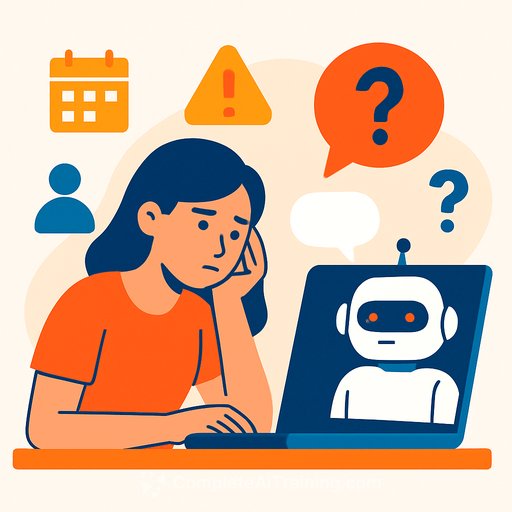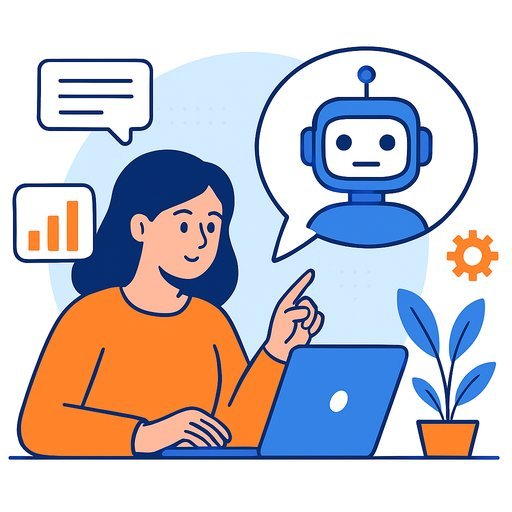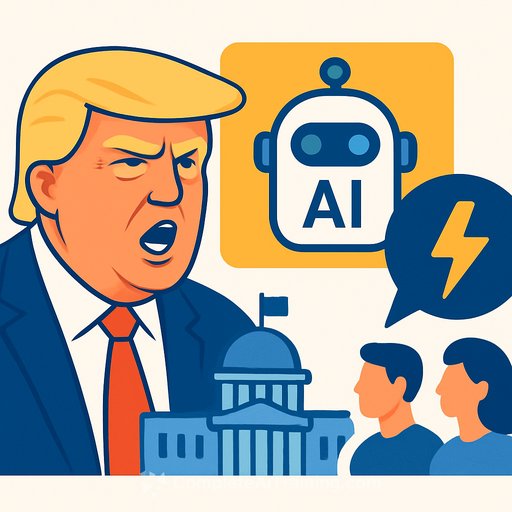Trust Gaps Remain: Everyday Scenarios Where AI Chatbots Struggle to Deliver
AI chatbots have found their way into many parts of our lives—workplaces, homes, and phones. Under pressure, they seem like a quick fix to save time or simplify tasks. You can ask them to write emails, explain concepts, or plan your week. But despite steady improvements, there are still situations where human judgment is essential.
Relying on AI in the wrong context can damage your reputation, finances, or peace of mind. Based on experience and repeated testing, here are nine common areas where chatbots fall short.
1. Important, High-Stakes Tasks
It’s easy to over-rely on chatbots for serious matters like medical symptoms, tax forms, or legal paperwork. These areas demand accuracy because mistakes have lasting consequences. AI chatbots generate responses by predicting language patterns, not by verifying facts.
People sometimes treat chatbots like experts, but they’re not. A confident-sounding answer can still be wrong. Think of chatbots as talkative friends who don’t always know what they’re saying—they sound convincing but aren’t reliable for serious decisions.
2. Replacing a Real Personal Assistant
Many AI tools claim to act as personal assistants but often fail at routine tasks like scheduling calls, ordering groceries, or managing notifications. They might suggest itineraries or answer questions, but handling real-time demands across multiple systems remains a challenge.
Even newer tools designed to work like personal assistants hit technical walls. In tests, they can get stuck, misunderstand requests, or skip steps. Handing over daily logistics to chatbots may create more confusion than clarity right now.
3. Writing Personal or Professional Emails
AI can improve grammar or suggest phrasing, but fully composing personal emails often results in awkward tone. Messages may sound robotic, vague, or generic, which can hurt trust when your words don’t feel authentic.
Some email platforms use AI to mimic past communication styles, but that can produce hollow messages. Plus, sharing your inbox access raises privacy concerns. When tone or confidentiality matters, writing your own emails is safer. People notice when your voice sounds genuine.
4. Searching for Jobs
Chatbots might offer quick tips or links, but they rarely scan live job listings or filter results based on your real qualifications. The recommendations often feel generic, lacking the detail that makes job hunting effective.
Platforms like LinkedIn and Indeed still outperform chatbots by showing up-to-date roles, filtering by skills or location, and highlighting legitimate openings. AI might save a few minutes early on but doesn’t replace thorough research on trusted job sites.
5. Building Resumes or Cover Letters
AI can help with formatting and basic suggestions, but it doesn’t truly understand your experience. Resumes need to reflect your growth and goals honestly, which is hard for a bot to capture.
AI-generated cover letters often recycle clichés and miss key details that make you stand out. Recruiters spot stiff or generic writing quickly. While AI can polish sentences, relying on it to write full applications risks coming across as careless. Hiring managers want your real voice, even if it’s imperfect.
6. Finishing Homework or Academic Projects
Students may use chatbots for quick essays or problem answers, but accuracy isn’t guaranteed. Science and math responses can have logical errors, while creative writing often feels generic.
Schools are improving AI-detection tools, so even altered AI content can get flagged. When work contains mistakes, fixing them takes more time than doing the assignment properly. Double-check AI output carefully or start fresh when grades depend on it.
7. Comparing Products or Planning Purchases
AI shopping assistants sometimes provide useful suggestions but often miss popular products or fail to explain how they rank items. Without transparency, it’s tough to trust their recommendations on expensive purchases.
In tests, chatbots missed well-known laptops or gave inconsistent advice. Review sites, comparison charts, and hands-on videos offer clearer, fact-based guidance. When money’s involved, solid research beats shortcuts every time.
8. Backing You Up in an Argument
Using chatbots to check facts or support opinions can backfire. They tend to echo your biases by mirroring your questions, reinforcing flawed reasoning rather than challenging it.
This feedback loop can distort the truth and make you feel more certain than you should. Leaning on AI to win arguments risks damaging relationships. It’s better to rely on trusted sources and open conversations when facts matter.
9. They Reflect the Biases of the Data They Were Trained On
Language models struggle with politically sensitive or emotionally charged topics, especially conflicts. For example, responses about ongoing wars may reflect biased narratives, downplay suffering, or avoid acknowledging war crimes.
This isn’t due to malice but results from training on public internet data that contains inherent biases from dominant media sources.
For those interested in building practical AI skills and understanding where these tools fit best, exploring targeted courses can help. Check out Complete AI Training’s latest courses for clear, hands-on learning paths.
Your membership also unlocks:






